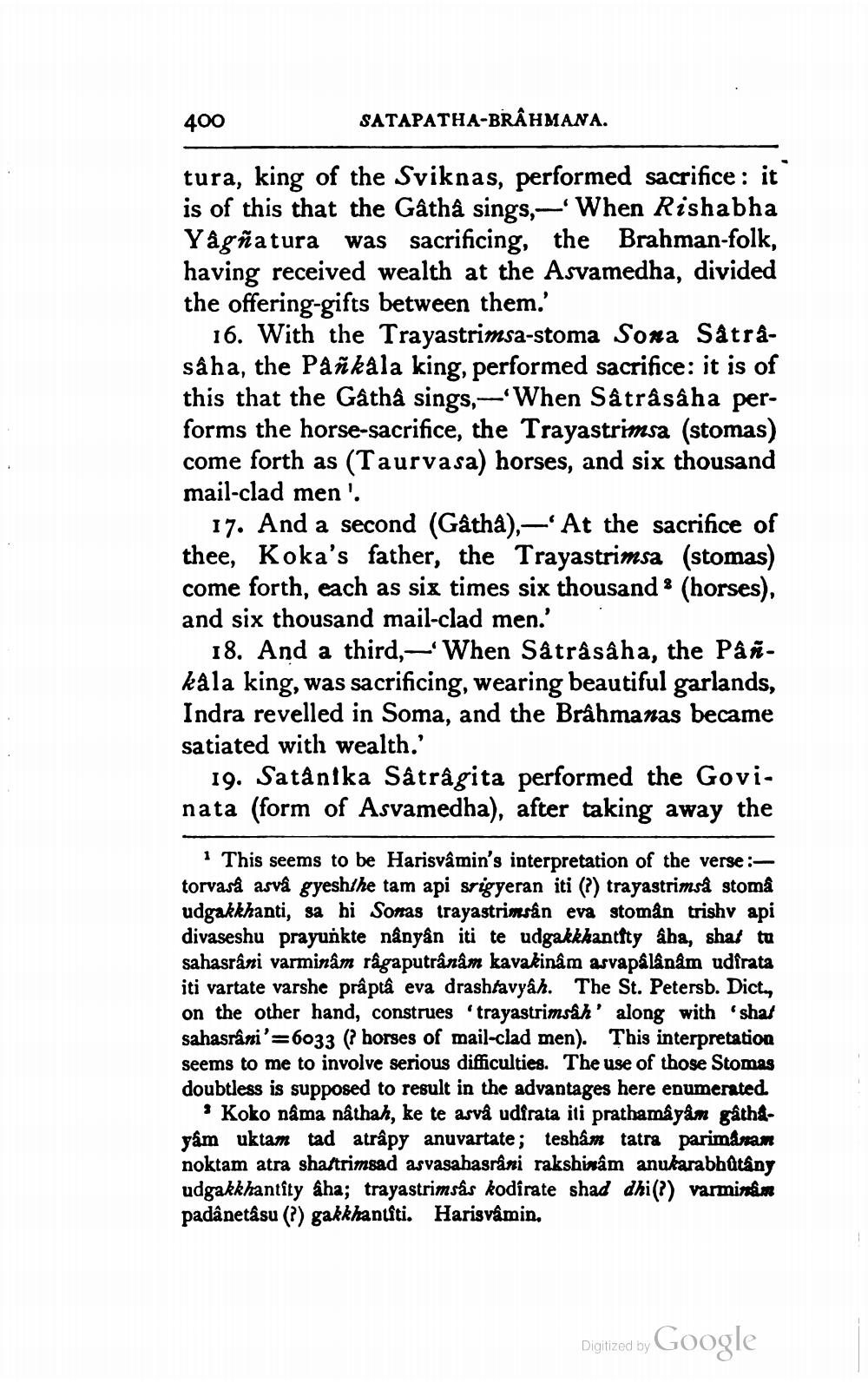________________
400
SATAPATHA-BRAHMANA.
tura, king of the Sviknas, performed sacrifice: it is of this that the Gâthâ sings,— When Rishabha Yagñatura was sacrificing, the Brahman-folk, having received wealth at the Asvamedha, divided the offering-gifts between them.'
16. With the Trayastrimsa-stoma Sona Satrasâha, the Påñkala king, performed sacrifice: it is of this that the Gâtha sings,—When Satrásâha performs the horse-sacrifice, the Trayastrimsa (stomas) come forth as (Taurvasa) horses, and six thousand mail-clad men'.
17. And a second (Gåtha),—'At the sacrifice of thee, Koka's father, the Trayastrimsa (stomas) come forth, each as six times six thousands (horses), and six thousand mail-clad men.'
18. And a third, — When Såtrâsâha, the Pånkala king, was sacrificing, wearing beautiful garlands, Indra revelled in Soma, and the Brâhmanas became satiated with wealth.'
19. Satânika Sâtrâgita performed the Govinata (form of Asvamedha), after taking away the
1 This seems to be Harisvâmin's interpretation of the verse :torvaså asvá gyeshthe tam api srigyeran iti () trayastrimså stoma udgakkhanti, sa hi Sonas trayastrimsan eva stoman trishy api divaseshu prayunkte nângân iti te udgakkkanttty aha, shat tu sahasrani varminâm râgaputrânám kavakinam asvapalânâm udirata iti vartate varshe prâptâ eva drashtavyâh. The St. Petersb. Dict, on the other hand, construes 'trayastrimsah' along with shat sahasrani'=6033 (horses of mail-clad men). This interpretation seems to me to involve serious difficulties. The use of those Stomas doubtless is supposed to result in the advantages here enumerated.
* Koko nama nathah, ke te asvå udirata iti prathamayam gâthagam uktam tad atrapy anuvartate; tesham tatra parimanam noktam atra shaltrimsad asvasahasrani rakshinam anukarabhūtány udgakkhantîty aha; trayastrimsas kodirate shad dhi(?) varminan padânetasu (?) gakkhanuiti. Haris våmin.
Digitized by Google




